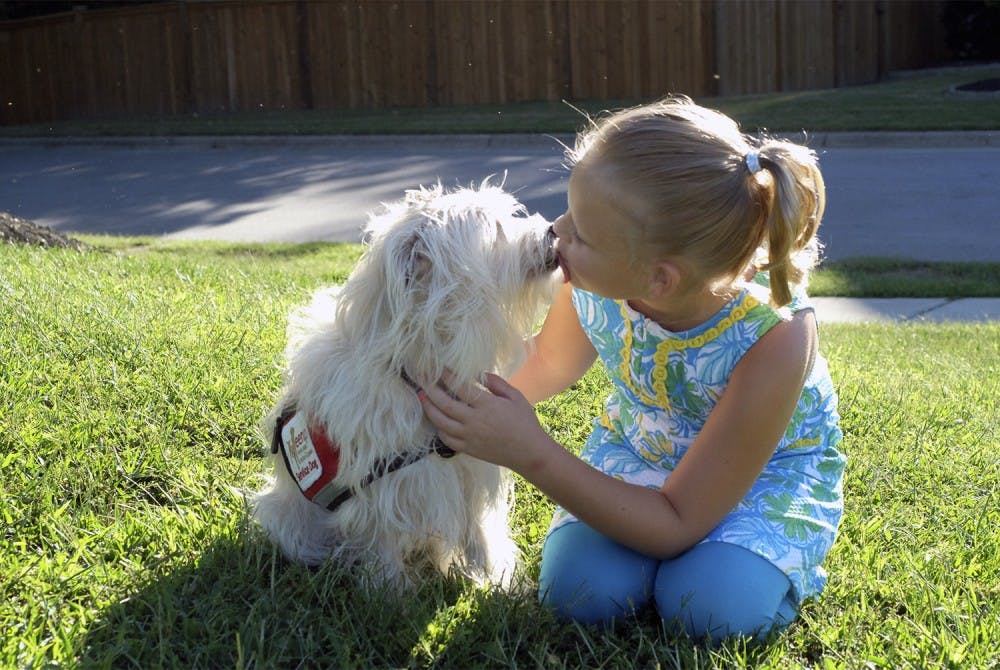Four years ago, KK’s parents, Michelle and John Krawczyk, came home from one of KK’s doctor’s appointments devastated. It was a year before KK would start school, and it looked like it wouldn’t be safe for her to go.
KK has mastocytosis, a rare disease that causes her to have mild to severe anaphylactic reactions that can cause fainting, vomiting and trouble breathing. Triggers for her reactions include stress, fatigue and changes in temperature.
They had an outside-the-box idea — getting KK a medical alert dog to get help when she started having a reaction.
“Our initial thoughts were, ‘If we could just get a dog to get help, maybe she’d be able to attend school. Maybe she wouldn’t have to sleep in our bed at night so we can make sure she’s still breathing,’” Michelle Krawczyk said.
Michelle Krawczyk went to the Carrboro service dog-training nonprofit Eyes Ears Nose and Paws. Program Director Deb Cunningham was sure they could train JJ, a dog the nonprofit had rescued from the Orange County Animal Shelter that year, to be a response dog, but she wanted to take it further.
“I was wondering if we could actually train JJ to detect a signature scent when KK was about to react,” Cunningham said. “I had no idea if it was possible.”
Michelle Krawczyk wasn’t sure, either.
“To be honest, I thought she was nuts,” she said.



